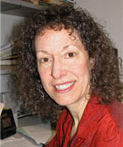King’s DNA throws a curve ball; WSU scholars weigh in

The recent announcement that a skeleton found under a parking lot in England two years ago is that of King Richard III has laid one mystery to rest – while giving rise to another.
Findings of a study published this month in the journal Nature Communications confirmed the skeleton as that of the English monarch who was killed in battle in 1485. But the DNA analysis also lays bare the fact that a break – or breaks – occurred on the male side of the monarch’s family tree. In other words, a woman married to a king had a son from another man.
“Basically, the more information that was gleaned from retrieving the king’s DNA, the more complicated the story became,” said WSU molecular anthropologist Brian Kemp who, with WSU historian Jesse Spohnholz, read the report and commented on its findings.
“At what point in the royal lineage the infidelity occurred is not known, and to identify the break in the male line would require examining six centuries of marriages,” said Kemp, who is widely known for his genetic analyses of 10,000-year-old Native Americans.


